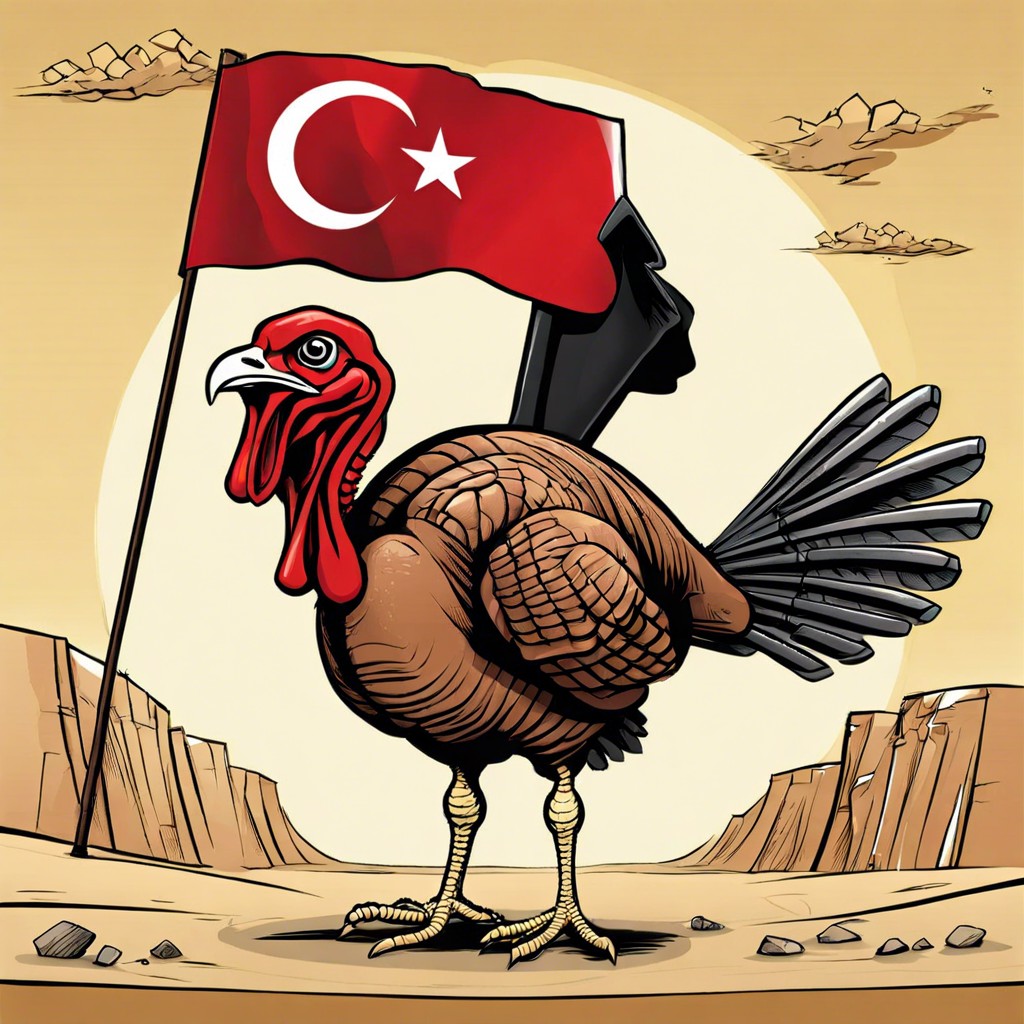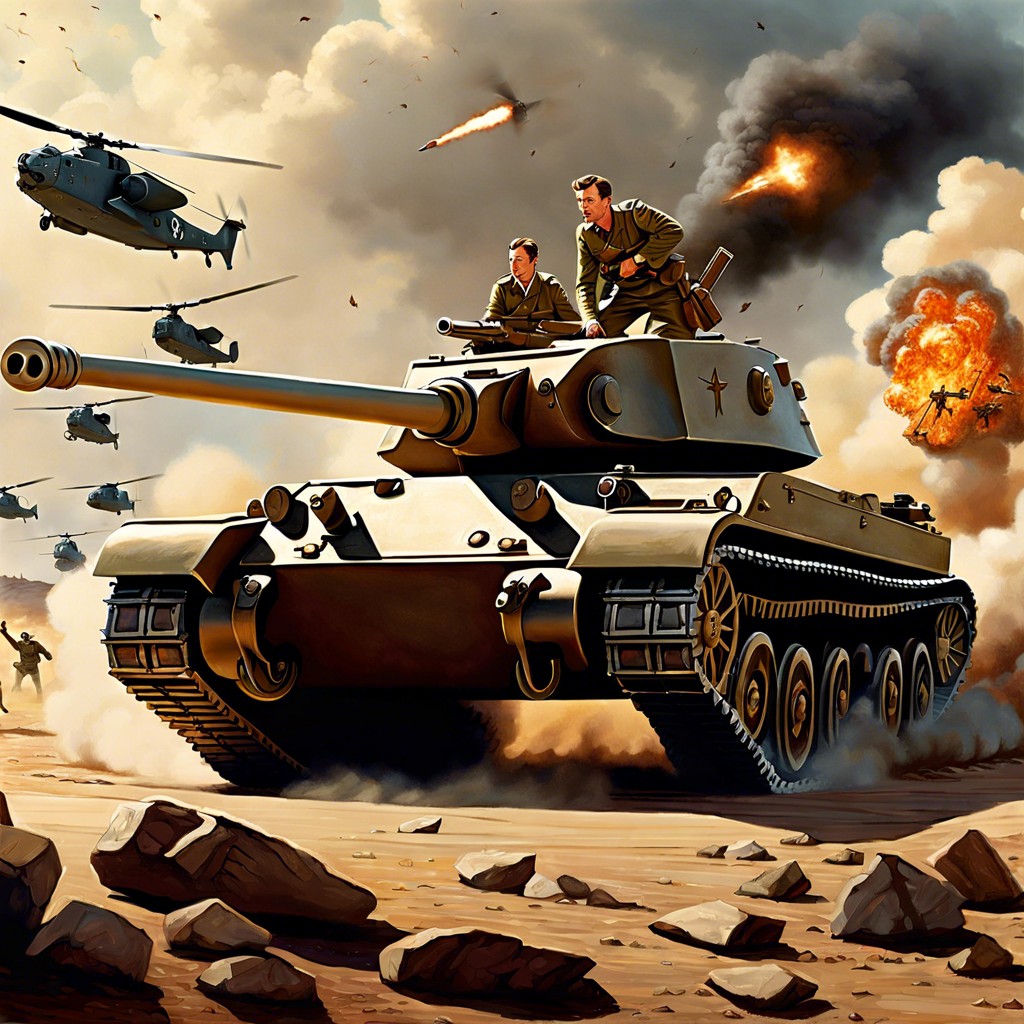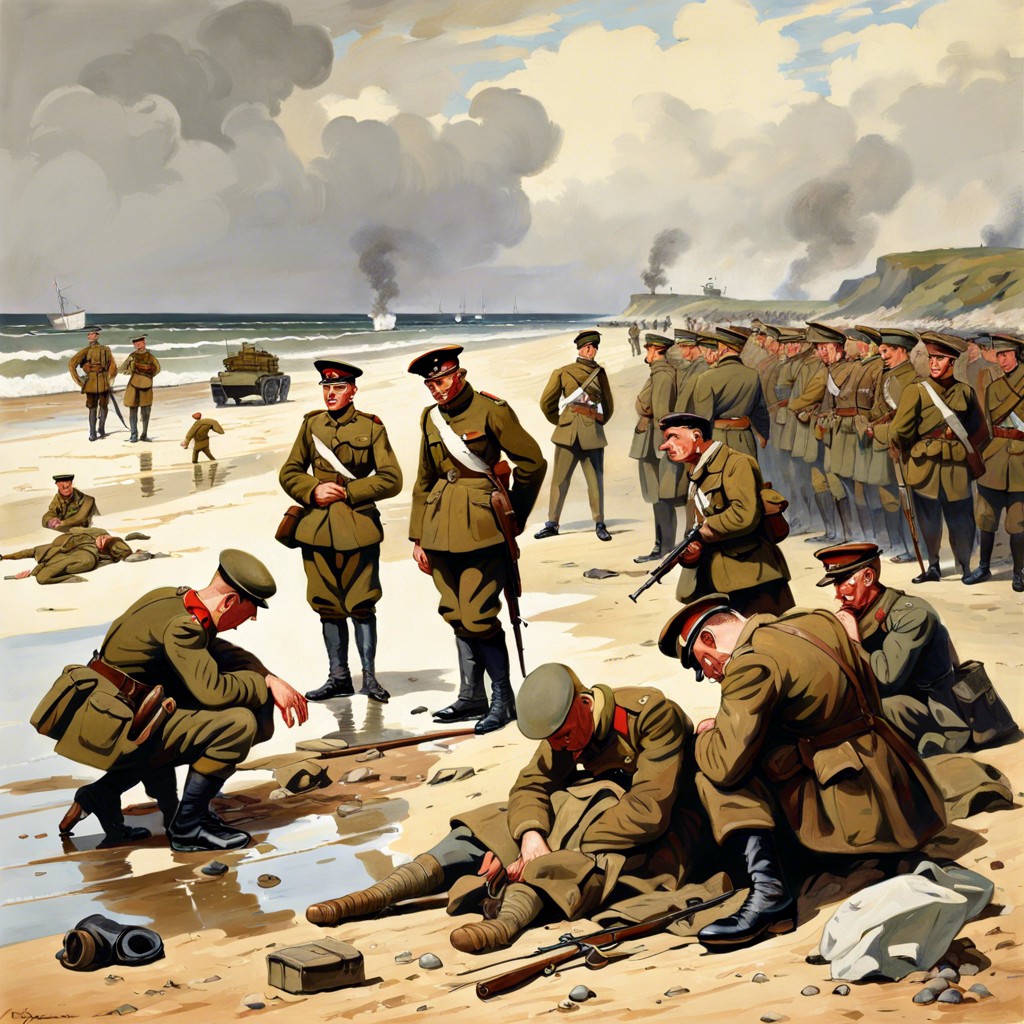Imagine a world where Turkey joined the Axis during World War II and learn how it might have completely reshaped global alliances and conflicts.
Imagine a world where Turkey threw its fez into the ring with the Axis Powers during World War II—what might that look like? From shifting geopolitical sands in the Middle East to ripple effects felt across the globe, let’s unravel a tapestry of strategic military moves, altered war outcomes, and profoundly impacted Turkish society and politics. Buckle up; history’s about to take a detour.
Key takeaways:
- Geopolitical shifts in the Middle East due to Turkey’s alliance.
- Strategic military implications on new fronts and naval battles.
- Impact on World War II outcomes with easier access to key resources.
- Consequences for Turkish society and politics under authoritarianism.
- Long-term effects on global relations and reshaped alliances.
Geopolitical Shifts in the Middle East

Picture this: Turkey, traditionally a bridge between Europe and Asia, suddenly dives head-first into the chaotic pool of Axis alliances. The Middle East wouldn’t just feel a ripple, but a full-blown tidal wave.
Firstly, nearby nations would scramble. With Turkey siding with Hitler and Mussolini, neighboring countries like Iraq and Iran might reconsider their stances, either hunkering down for defense or cozying up to the Allied powers for survival. After all, who wants to be stuck between a rock and a hard place when the rock is a bellicose Turkey?
Secondly, the strategic location of Turkey would mean that the Axis powers could control crucial access to the Mediterranean and the Black Sea. This geographical advantage is akin to having the best seat at a rock concert, seeing everything first and having access to all the exits.
And what about the British Empire? Their control of Middle Eastern oil fields and the Suez Canal would face significant threats. Let’s just say, their plans might include a lot more rationing and a lot fewer tea breaks.
Lastly, the local resistance movements would have to reconsider their game plans. Just imagine the clandestine meetings, dramatic betrayals, and spy games that would unfold faster than you can say “cloak and dagger.”
This scenario paints a very different picture of WWII, and it all stems from one colossal shift in allegiance. Talk about a plot twist!
Strategic Military Implications
Turkey’s entry into the war would have significantly altered military tactics on both sides. First off, imagine the advantage of Turkey’s geographic location. Sitting snugly at the crossroads of Europe and Asia, Turkey’s involvement would have provided the Axis forces with direct routes into the Middle East and potentially the Soviet Union. It could have opened up new fronts and stretched Allied forces thinner than Marmite on toast.
Then, consider the Turkish Straits. Controlling this narrow waterway would have disrupted Soviet supply lines to the Mediterranean and potentially changed naval battles in the region. The Bosporus and Dardanelles could have become the world’s hottest choke points, quite literally.
Further, let’s not forget about Turkey’s military resources. By 1940, Turkey boasted a fairly modern military, including an air force that could have supported Axis bombing campaigns. Allied forces would have faced not just a new opponent, but a well-equipped one.
On the flip side, Turkey’s mountainous terrain could also have provided challenging battlegrounds. Anyone trying to invade would soon wish they were back home sipping tea instead of climbing rugged cliffs.
With Turkey in the mix, war strategies would have needed some serious recalculations. There would be no resting on laurels; all plans would have to be re-plotted, redrawn, and probably thrown out the window a few times.
Impact On World War II Outcomes
Turkey throwing its weight behind the Axis could have created significant ripples. Firstly, the Middle Eastern front might have looked drastically different. Imagine Axis forces having easier access to key oil resources – quite the game-changer.
The Turkish Straits, vital maritime choke points, would have become a strategic playground for Axis navies. Allied convoys could have faced even more obstacles, making supply routes a logistical nightmare.
Let’s not forget the psychological edge. German and Italian troops marching through Anatolia would have siphoned off Allied resources, diverting attention from European and Pacific theaters.
The domino effect on neighboring nations like Greece and the Soviet Caucasus could have been profound. Soviet forces might have faced an additional front, stretching their already strained resources further.
All these factors combined might have prolonged the war or shifted critical battles. The Allies would have needed to devise entirely new strategies, with the Mediterranean and Middle Eastern theaters becoming even more complex arenas of conflict.
Consequences for Turkish Society and Politics
One could imagine Turkish society waking up to a completely different world. Firstly, the alliance would likely shift Turkish politics towards authoritarianism. A close bond with fascist regimes would mean increased censorship, suppression of dissent, and a rise in nationalist propaganda.
Economic repercussions would also be significant. Trade routes might grind to a halt due to blockades, leading to shortages and hardship. The country’s infrastructure would struggle under war-time pressure, something akin to trying to fix a leaky ship in a storm.
Socially, there’d be a stark divide. Pro-axis sentiment would clash fiercely with those opposed to the alliance, resulting in societal tension and dissent. Families and communities could be torn apart as heated debates transition from intellectual discourse to outright anger.
Education would undergo transformation. Curriculums might shift focus to glorify the axis ideals, with an emphasis on military glory over the arts and sciences. Imagine less Shakespeare, more blitzkrieg. Students would be trained not just as scholars but as warriors of ideology.
Finally, cultural legacy would hang in the balance. Traditional Turkish values might be overshadowed with new imported ideologies. Efforts to propagate an axis-friendly narrative could be seen in everything from cinema to literature.
Long-term Effects On Global Relations
Future global relations would have looked drastically different. Turkey aligning with the Axis powers would have reshaped alliances and rivalries.
First, the Cold War dynamics. Turkey’s NATO membership? It might not have existed. Imagine the Soviet Union eyeing Turkey with even more suspicion, leading to heightened tensions in the region.
Secondly, the Middle East balance. Turkey’s Axis alignment could have emboldened other regional players to make riskier moves, possibly creating new conflicts or changing the outcomes of existing ones.
Thirdly, economic impacts. Turkey’s industries and trade routes would align differently, affecting global markets. Imagine a world where Turkish exports flow to different destinations, disrupting supply chains we take for granted today.
Last but not least, cultural exchanges. The flow of ideas, customs, and traditions between Turkey and the rest of the world would have evolved, resulting in a unique mix of influences that could make today’s cultural landscape almost unrecognizable.
It’s a ripple effect of historical proportions, leaving us to ponder the roads not taken.




